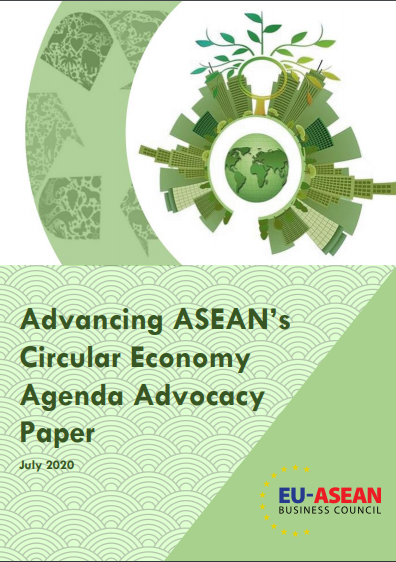
Date: July 2020
By: EU - ASEAN Business Council
ASEAN is facing a crisis like never before. COVID-19 has disrupted supply chains, impacted stock markets, and has taken the lives of thousands of people. The Asian Development Bank (ADB) has revised ASEAN’s growth forecast from 4.7% to 1% in 2020, as 7 out of 10 Member states enter deep recessions.
As Covid-19 traced its way through the region from early February, all ASEAN members adopted different approaches to deal with the outbreak. As economies begin to implement exit strategies, now more than ever, sustainability needs to be used a business model. Such an approach will promote long term resilience, preparedness, and competitiveness. The Global Commission on the Economy and Climate has found that strategic policy and investment decisions supporting a transition to low-carbon, sustainable growth could bring in economic gains of US$26 trillion by 2030, powered by job creation in cleaner industries, health gains through improvements in air and water quality, and tax revenue from non-renewable energy sources.
Herein lies an opportunity for ASEAN leaders to develop recovery plans, centred on circularity. The circular economy, at the heart of it, calls for a fundamental realignment of our society’s production and consumption patterns – which presently assumes a myopic worldview of limitless resources and waste absorption capacity. A circular economy is a systemic approach to economic development designed to benefit businesses, society, and the environment. In contrast to the 'take-make-waste' linear model, a circular economy is regenerative by design and aims to gradually decouple growth from the consumption of finite resources.
The paper is attachted below:
Share: